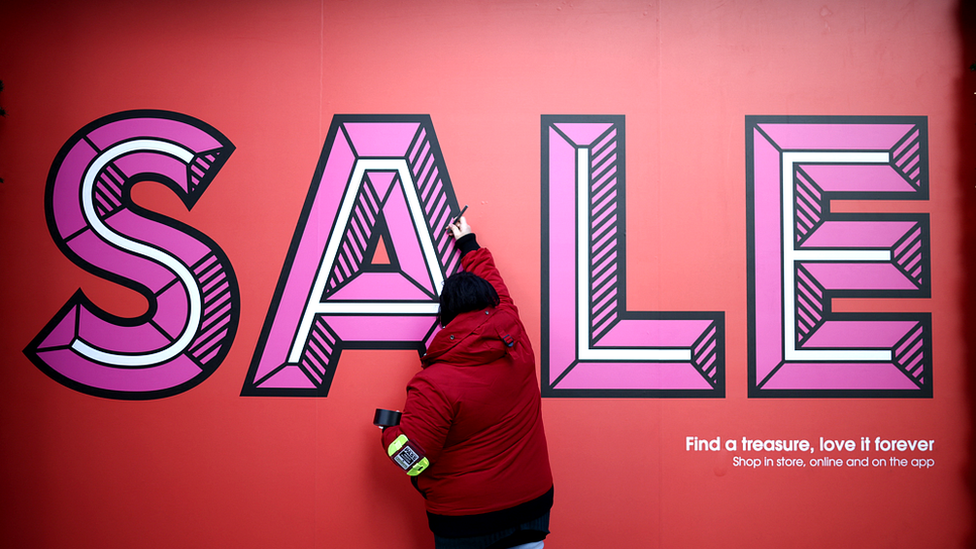Post-Christmas shopping footfall beats Boxing Day
- Published

The number of people heading out to shops on 27 December beat the traditional Boxing Day sales by nearly 40% but footfall remains below pre-Covid levels.
Analysts at Springboard said there was a rise in shoppers visiting retail parks between Monday and Tuesday.
Overall, however, footfall over the Christmas bank holidays remained sharply lower compared with 2019.
Tuesday's footfall dropped by nearly 25% from before the pandemic.
Diane Wehrle, insight director at Springboard, said the data showed "clearly that whilst Boxing Day is a renowned date in the Christmas retail trading calendar, in fact 27 December is a busier day for UK retail destinations than Boxing Day, with a rise in footfall of 36.6% from the day before".
Comparing 27 December to last year, when the Omicron variant of Covid was spreading and some restrictions remained in place, footfall grew by 12.8%.
UK retail parks saw the biggest rise in post-Christmas footfall, with over 60% more shoppers compared with Boxing Day.
Measured against High Streets and shopping centres, retail parks are the only destination to have significantly closed the gap with pre-Covid levels after Christmas.
While Ms Wehrle, told the BBC the data would be "encouraging" for retailers but the overall drop since 2019 is "attached obviously to the cost of living crisis".
Separate research suggests that shoppers expected to spend less this year.
Barclaycard predicted that the average person would spend £229 in the post-Christmas sales, £18 less than last year.
In a survey of 2,000 would-be shoppers, the credit card firm found that 42% said the higher cost of living would temper spending in the post-Christmas sales, with many of those saying they would spend less compared to previous years.
The rate of price rises - also known as inflation - hit 10.7% in November which was lower than October but is still at its highest for 40 years.
Dr Sarah Montano, retail expert and senior lecturer of marketing at the University of Birmingham, said: "For many consumers, obviously they would've been shopping pre-Christmas, as we had the Black Friday sales and things like that.
"As we move into the new year, we expect consumers to be a bit cautious because of course, the heating bills will still be to come for consumers and that will impact on their discretionary spending."
The rise in Boxing Day and Bank Holiday footfall came despite rail strikes by members of the RMT union who work for Network Rail as well as some members of the Transport Salaried Staffs' Association.
A strike by TSSA members at Great Western Railway and West Midlands Trains began on 28 December and will last until midnight on 29 December.
Related topics
- Published9 May 2024

- Published22 December 2022
